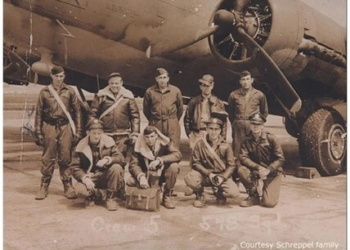Soldiers preparing to exit their military career now have an added financial resource in their transition toolbox.
Army Emergency Relief (AER), the Army’s official nonprofit, has launched an Army-wide assistance program to provide funding to participants of the Career Skills Program (CSP) — a program that aids soldiers in their career transition.
AER has pledged $3 million in support to CSP, by making grants available to soldiers. The grants, which could support 2,000+ soldiers in total, are available for travel, lodging, business attire, relocation expenses, and other out-of-pocket costs that could be associated with CSP.
“Asking for help is a strength,” said retired Army Col. Sean Ryan, director of marketing and communications for AER, when describing AER’s Career Skills Program Assistance (CSPA).
While on active duty, soldiers know that to be combat ready “all soldiers and their families have to be taken care of so soldiers can accomplish the mission at hand,” Ryan said in an interview via email and phone.
After 29 years of serving himself, including multiple deployments to the Middle East, Ryan personally understands this same state of readiness applies when prepping for the civilian world and the importance for military families to be aware of programs supporting this transition.
Furthermore, he recognized the hesitancy service members may have when asking for help, even in times of need that is no fault of their own.
READ MORE: ‘Soldiers helping soldiers’ more than a motto for Army Emergency Relief
In busting the negative connotations, Ryan first talked about AER’s record of assistance since WWII as the only private, non-profit organization tied to the Army. He also highlighting a few of the latest ways they support families.
For example, this past year AER gave $600 to more than 1,600 families displaced by the water crisis on bases in Hawaii, totaling over a million dollars to use at their own discretion.
In addition, AER helps offset costs associated with transporting pets when PCSing, as well as childcare expenses exasperated by the COVID-19 pandemic.
Situations like these make transitioning out of the military even more challenging, so its key Army families realize AER can help alleviate financial strains in a multitude of ways.
Created in 2015, CSP gives soldiers the opportunities to train with civilian industries, improving their likelihood of employment when leaving the military.
However, secondary expenses associated with participating in CSP add up, which is why AER stepped in to alleviate the financial impact, Ryan said.
“Soldiers can qualify for grants ranging from $500 to $1,500 and do not repay the money,” Ryan explained. “AER feels as the only official non-profit of the U.S. Army, we have an obligation to help Soldiers transition out of service after they have served their country honorably.”
In less than two months, AER has already given 50 grants totaling $40,000, Ryan said. Soldiers don’t have to stress about deadlines either. To apply, they just need to contact their local AER office and go through their chain of command. They can also determine their eligibility and the requirements online.
On a related note, Ryan described two other AER programs helping Army families prepare for the civilian sector. First, the Mrs. Patty Shinseki Spouse Scholarship, is a scholarship program for spouses pursuing academic degrees or professional certifications. And second, the Maj. Gen. James Ursano Scholarship Fund, is for children pursing undergraduate degrees, providing up to four years of assistance.
Ryan concluded by reiterating the fact AER doesn’t get federal dollars, instead receiving funding from Soldiers, both active-duty and retired and from corporate donations. Lastly, in terms of CSPA, he said AER will “continue until the $3 million is exhausted and then the program will be re-evaluated to ensure we are serving the Soldier and their family properly.”







































